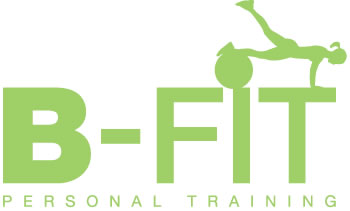Perimenopause is a phase that many women feel unprepared for, which is probably a reflection of the lack of reliable education on the subject, especially if you want to steer clear of medical intervention and allow for the changes to occur naturally, just like women have done for millennia. Many women often feel they struggle to get the right help and support they need when they are experiencing perimenopausal and menopausal issues and can often suffer in silence for years. You will probably be shocked to hear that 41% of universities in the United Kingdom don’t have mandatory menopause education on the medicine curriculum. It’s not even mentioned in the majority of medical textbooks, which is a horrifying statistic considering more than half of the population goes through this change.
This scarcity of support and resources leaves many women having to deal with the physical and emotional changes of menopause with more questions than answers. It is a well-known fact that many women often gain weight during peri/menopause, which is due to the many physiological changes that occur during this natural life transition. These physiological changes include the decrease in levels of our main hormone, oestrogen. When our oestrogen levels decrease, it can lead to a shift in body fat distribution, which can cause more fat to be stored around the abdomen (visceral fat) rather than your hips and thighs. Another physiological change is the fact that we lose lean muscle tissue, which slows down metabolism. And when you have a slower metabolism, your body burns fewer calories, which also makes it easier to gain weight — especially if you have a sweet tooth or love a glass (or two) of wine!!! On top of these physiological changes, many women also experience lifestyle changes, such as increased stress from having to juggle work with family commitments, as well as tending to aging parents, decreased physical activity due to having to juggle so many commitments, poor sleep and not eating well due to emotional eating or cravings.
So, is there anything you can do to make it easier to manage your weight during peri/menopause? Well luckily, there are several things you can do to keep your weight in check during this transition………
Don’t Pile On The Pounds
If you ask my lovely clients how they felt before working with me, they found it increasingly difficult to maintain their previous weight doing the same things that they always did. I’ve been doing this job for decades and even I’ve had to adjust my exercise and eating habits in my perimenopause. Basically, there’s no way that you can get through menopause without piling on the pounds unless you change your diet and exercise, so let’s take a closer look at what they are……..
#1 Focus On Nutrition
This one is arguably the most important thing you can do to stop menopausal weight gain. Making sure that you have a range of foods daily, with an emphasis on organic vegetables and fruits, grains like quinoa, lean organic/grassfed proteins and healthy fats. You should definitely limit your intake of any ultra-processed foods and takeaways, which are full of toxic fats like rapeseed and contain hidden sugars that will make you pile on the pounds even faster. By putting the focus on giving your cells the nutrients you need and staying hydrated with plenty of clean water (not sugary or sugar-free chemically laden squash!!!), you’ll be able to keep emotional and/or stress eating at bay, which affects many women during their perimenopause, who indulge in unhealthy foods or too much wine to help regulate their emotions.
#2 Move It — Regularly
There’s no way around this — perimenopausal women need to do a combination of cardiovascular exercise (like brisk walking, cycling, swimming or dancing) and strength training to help build lean muscle mass, which decreases rapidly due to the reduction of oestrogen in the body. Doing strength training and bodyweight exercises regularly will also help to boost your metabolism and keep your bones strong, which will work to keep osteoporosis at bay. You should aim to do at least 150 minutes of moderate activity per week. You could even add yoga to this mix. Doing a vinyasa or power yoga class will give you a low-impact workout that works on your strength and flexibility, as well as your mindfulness, whilst the right metabolic conditioning strength training program using weights and body weight will have you working muscles that you didn’t even know existed, increase your metabolism so that you burn fat more efficiently, tone up and lose those unwanted wobbly bits……… WIN WIN — and all without breaking a sweat!!!
#3 Stress Out
Living in high stress will increase your cortisol levels, pile on the abdominal fat and lead to emotional eating, which is why stress management plays a crucial role in helping to manage any weight gain during menopause. Managing your stress can include doing things like making sure you get enough sleep each night, because insomnia and fatigue can also disrupt the hormones that regulate your appetite and metabolism. So, you should aim to get 7-9 hours of sleep per night — every night!!! Turning off your phone at least two hours before you retire and not taking it to bed with you can help you to do this, because the blue light that is emitted from smartphone screens suppresses the body’s melatonin production, the hormone that regulates your sleep and wake cycles. And when melatonin is suppressed, it makes it much harder for you to fall asleep, which disrupts your natural circadian rhythms.
You will also help yourself by adding some mindfulness practices into your daily routine, such as deep breathing and relaxation techniques like meditation to calm down your nervous system, which in turn suppresses cortisol production, or engaging in activities that you really enjoy, which helps to your boost motivation for maintaining your new healthy habits.
By combining these 3 ways to manage weight gain during peri/menopause, you will fight the flab and have a healthy and toned body that you’ll still enjoy showing off!!!
Love, Gaynor x





